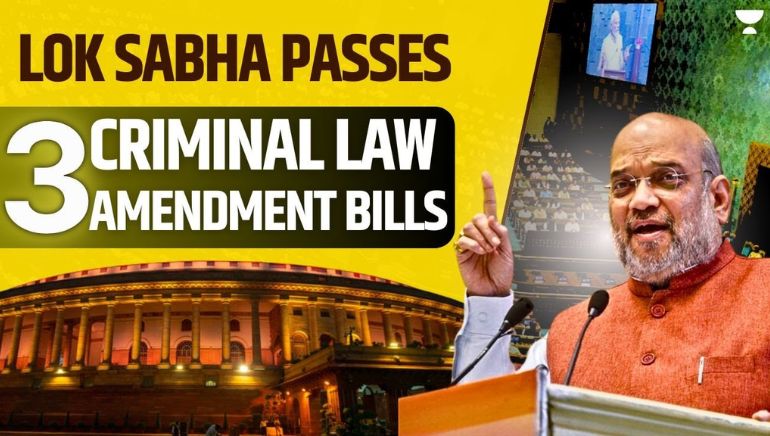The Lok Sabha approved three revised criminal law bills on December 20, signalling a substantial transformation in the Indian criminal justice system. Aimed at establishing a “justice system based on Indian thinking,” the bills propose to replace key legal frameworks.
The Bharatiya Nyaya Sanhita seeks to replace the Indian Penal Code, the Bharatiya Nagarik Suraksha Sanhita aims to replace the Code of Criminal Procedure, and the Bharatiya Sakshya Sanhita is set to replace the Indian Evidence Act.
Introduced by Union Home Minister Amit Shah, these bills address a colonial mindset inherent in existing criminal laws, emphasising a shift from punishment-centric approaches to a more justice-oriented system. Shah highlighted the bills’ alignment with the spirit of the Constitution.
Despite being the subject of contention, the bills secured passage in the Lower House in the absence of 97 suspended MPs. Mr. Shah emphasised the bills’ potential to liberate citizens from colonial-era thinking.
Crucially, the legislation eliminates sedition as a crime, introducing a new category, “offences against the state.” Notably, it provides a defined framework for terrorism and introduces stringent measures against mob lynching, including the possibility of the death penalty.
Speaking to the House, Mr. Shah acknowledged the financial challenges faced by the underprivileged in accessing justice and emphasised the bills’ role in addressing delays and streamlining accountability within the legal system.















